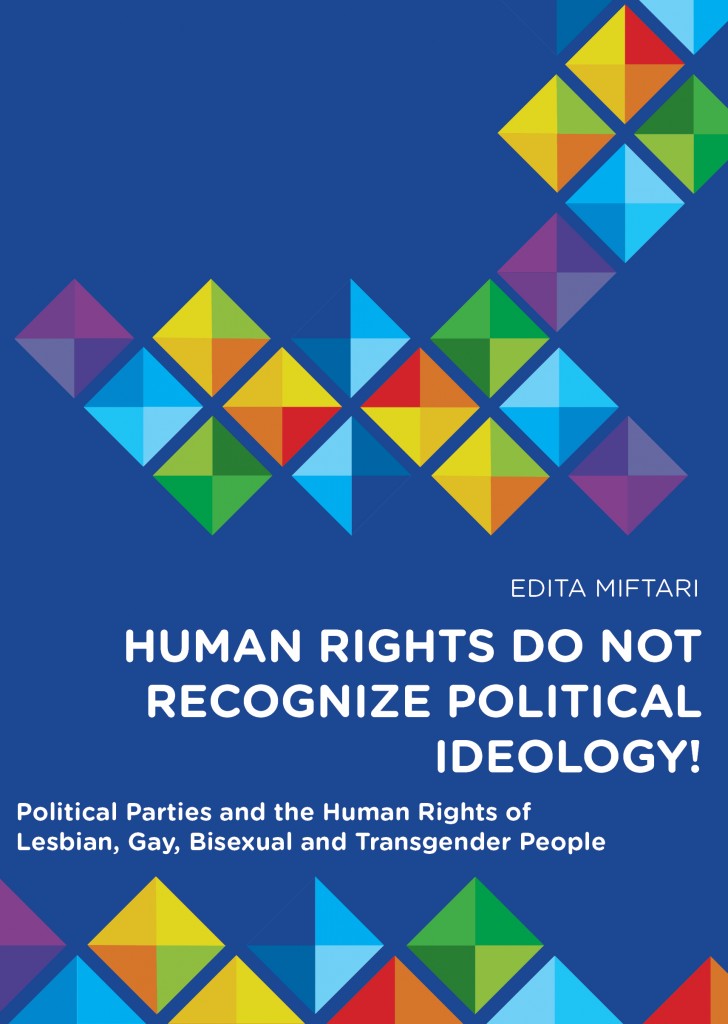 Our many years of experience in advocating human rights of lesbians, gay men, bisexual and transgender people in Bosnia and Herzegovina, one of the most complicated European countries, has taught us one thing: without significant support from political parties, the state of LGBT human rights will not improve.
Our many years of experience in advocating human rights of lesbians, gay men, bisexual and transgender people in Bosnia and Herzegovina, one of the most complicated European countries, has taught us one thing: without significant support from political parties, the state of LGBT human rights will not improve.
We have decided to create this guidebook in order to enhance the relationship between civil society organizations and political parties. This way, we hope to strengthen this relationship and create new collaborative relationships, as well as to remove any ungrounded fears.
Having read this publication, you will arrive at different conclusions. Some of them might be:
- LGBT persons represent an invisible minority in every society and are therefore exposed to violence and discrimination that deserve special attention;
- The state of LGBT human rights largely depends on leading political parties’ dedication to the human rights of the community;
- LGBT persons make up about 10% of every state’s population, meaning to say they make up 10% of the electorate and could have a decisive role in electoral processes;
- Although LGBT human rights advocacy is usually linked to leftist parties, especially the social-democratic and green parties, the reality is that parties of all political ideologies deal with LGBT human rights: from parties on the far right, to those on the far left;
- LGBT human rights advocacy from right-wing, traditionalist and conservative political parties did not result in their demise or in a loss of electorate and support. On the contrary, it was a means by which the said parties strengthened their democratic principles by attesting that all human beings are equal and deserve equal attention;
- Societies of developed European democracies have enabled LGBT persons to freely and publicly declare themselves as socially different, without suffering any consequences in their personal or professional lives. LGBT persons are presidents, prime ministers and ministers, parliament representatives, mayors, city councilors, etc., thus they actively contribute to the further development of their societies.
We also strongly believe that Bosnian and Herzegovinian political parties should be more responsible towards this marginalized community. Bosnian and Herzegovinian political parties should:
- Publicly condemn all forms of violence and discrimination against LGBT people, signalizing to the public that any violation of the LGBT human rights is not allowed;
- Promote preventive measures to combat violence and discrimination against LGBT people, through governmental institutions, strategies and action plans.
- Through governmental institutions and with no restrictions, guarantee all the rights, including the freedom of assembly, in case of the initiative for organizing public protest marches (pride parade);
- Support legislative initiatives that abolish discrimination of LGBT people, such as adopting legislation that will enable same-sex couples to enjoy the rights that derive from their cohabitation (the right to inheritance, the right to a pension inheritance, the right to health insurance through a partner, etc.) or enable medical support for sex adjustment when it comes to transexual persons;
- Through media, education and other channels, promote tolerance towards all minorities, including LGBT persons, for the purpose of creating better living environment/conditions that will not force LGBT people to live in anonymity or even leave the country; intolerant social climate has enormous consequences on the Bosnian and Herzegovinian economy, having in mind that a large number of highly educated professionals leave Bosnia and Herzegovina every year, including LGBT persons;
Finally: we should not be waiting for the moment when our society becomes tolerant and inclusive, just as we should not be waiting for the generational shift since it will not happen as long as the Bosnian and Herzegovinian society is ruled by negative and quite homophobic politics. Political parties should keep in mind the fact that politics creates social consciousness, not vice versa, and act accordingly. Taking responsibility, being open to discussing these issues with a positive approach, avoiding excuses and the perpetual waiting for the right moment, as well as proactive thinking on these issues are only some of the ways to put the issues surrounding LGBT human rights on the current political agenda.
The manual is free and available in PDF and hard copy.
 Human Rights do not Recognize Political Ideology! Political Parties and the Human Rights of Lesbian, Gay, Bisexual and Transgender People
Human Rights do not Recognize Political Ideology! Political Parties and the Human Rights of Lesbian, Gay, Bisexual and Transgender People